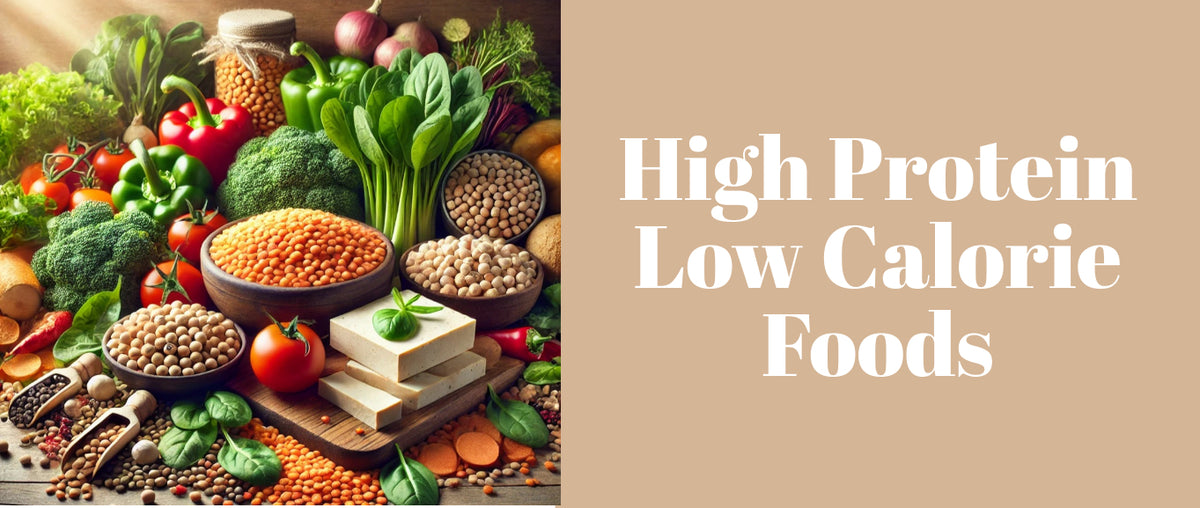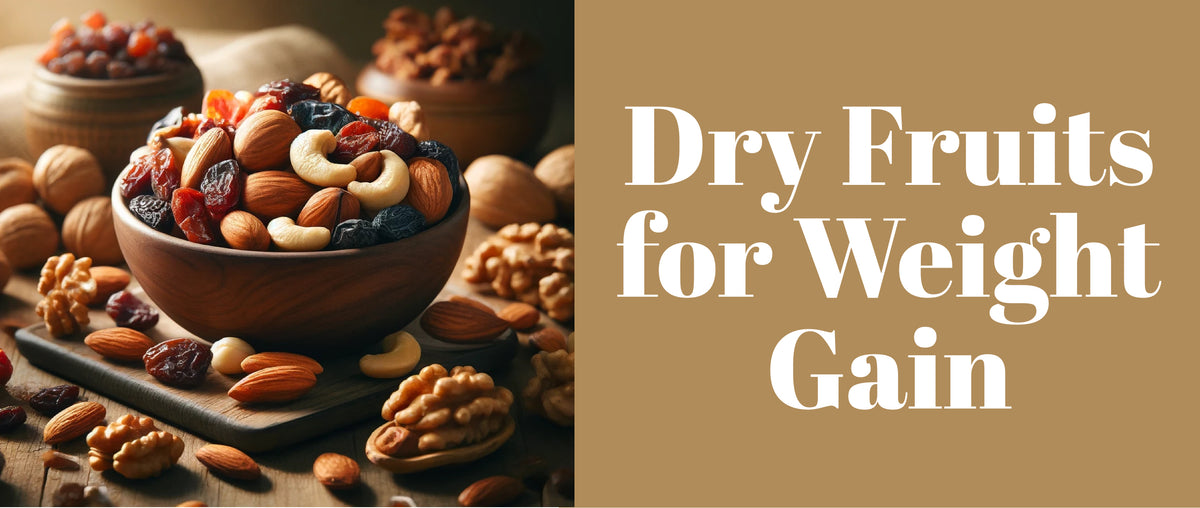High Protein Low Calorie Foods
High protein, low-calorie foods play a crucial role in maintaining a healthy diet. They help with weight management, muscle recovery, and overall well-being. For those following a weight gain diet plan, incorporating high protein, low-calorie foods can be beneficial without adding excess fat. This article will guide you through the best options available and how to include them in your daily meals.
Key Takeaways
- High protein, low-calorie foods are essential for weight loss and muscle maintenance.
- Animal-based options like chicken breast and Greek yogurt are excellent sources.
- Plant-based options include lentils and tofu, providing essential nutrients without excess calories.
- Incorporating these foods into your diet can improve metabolism, enhance muscle growth, and aid in weight management.
What Are High Protein, Low Calorie Foods?
High protein, low calorie foods are foods that provide a significant amount of protein per serving while keeping the calorie count low. These foods are essential for muscle recovery and building, satiety, and maintaining a healthy diet. They are particularly beneficial for those looking to lose weight or maintain lean muscle mass without consuming too many calories.
Benefits
- Weight management: Helps in reducing body fat and maintaining lean muscle.
- Muscle recovery: Essential for repairing and building muscle tissues.
- Satiety: Keeps you feeling full longer, reducing overall calorie intake.
- Metabolism: Boosts metabolic rate, aiding in weight loss.

Top Plant Based High Protein, Low Calorie Foods
Lentils
Lentils are a staple in many diets and are an excellent source of plant-based protein. They are also rich in fiber, which aids digestion and helps keep you full longer.
- Protein Content: Approximately 9 grams per 100 grams (cooked)
- Calories: About 116 calories per 100 grams (cooked)
Benefits:
- High in fiber and essential nutrients
- Supports digestive health
- Great for weight management
Chickpeas
Chickpeas, also known as garbanzo beans, are versatile legumes that can be added to salads, soups, or made into hummus. They provide a good balance of protein and fiber.
- Protein Content: Approximately 8 grams per 100 grams (cooked)
- Calories: About 164 calories per 100 grams (cooked)
Benefits:
- Rich in fiber and vitamins
- Helps in controlling blood sugar levels
- Supports a healthy diet
Tofu
Tofu is a highly nutritious and versatile soy product. It can be used in a variety of dishes, from stir-fries to smoothies.
- Protein Content: Approximately 8 grams per 100 grams
- Calories: About 76 calories per 100 grams
Benefits:
- Contains all essential amino acids
- Low in calories and fat
- Supports a plant based diet
Tempeh
Tempeh is a fermented soy product that offers more protein per serving than tofu. It has a firm texture and nutty flavor, making it a great meat substitute.
- Protein Content: Approximately 19 grams per 100 grams
- Calories: About 192 calories per 100 grams
Benefits:
- High in protein and probiotics
- Supports digestive health
- Ideal for High Protein Vegan Food
Edamame
Edamame are young soybeans that are often steamed and served as a snack or added to salads and other dishes.
- Protein Content: Approximately 11 grams per 100 grams
- Calories: About 122 calories per 100 grams
Benefits:
- High in fiber and antioxidants
- Supports heart health
- Great as high protein snacks
Quinoa
Quinoa is a complete protein, meaning it contains all nine essential amino acids. It’s a versatile grain that can be used in salads, soups, or as a side dish.
- Protein Content: Approximately 4 grams per 100 grams (cooked)
- Calories: About 120 calories per 100 grams (cooked)
Benefits:
- Gluten-free and high in fiber
- Supports digestive health
- Ideal for healthy eating
Beans
Beans, such as black beans, kidney beans, and pinto beans, are rich in protein and fiber. They can be used in a variety of dishes from soups to salads.
- Protein Content: Approximately 8 grams per 100 grams (cooked)
- Calories: About 127 calories per 100 grams (cooked)
Benefits:
- High in fiber and antioxidants
- Supports heart health
- Great for weight management
High Protein, Low Calorie Snacks
Cottage Cheese
Cottage cheese is a low-calorie dairy product that is high in protein. It can be enjoyed on its own or mixed with fruits and vegetables.
- Protein Content: Approximately 11 grams per 100 grams
- Calories: About 98 calories per 100 grams
Benefits:
- High in calcium for bone health
- Supports Muscle Recovery
- Ideal for Healthy Snacks for Kids
Pumpkin Seeds
Pumpkin seeds are a nutritious snack that is high in protein and healthy fats. They can be eaten on their own or added to salads and yogurt.
- Protein Content: Approximately 19 grams per 100 grams
- Calories: About 559 calories per 100 grams
Benefits:
- High in magnesium and antioxidants
- Supports heart health
- Perfect for a healthy diet
Protein Bars (Low-Calorie Options)
Low-calorie protein bars are a convenient way to get a quick protein boost on the go. Look for bars that are low in sugar and high in protein.
- Protein Content: Varies, typically 10-20 grams per bar
- Calories: Varies, typically around 200 calories per bar
Benefits:
- Convenient and portable
- Supports muscle recovery
- Ideal for a weight gain diet plan
Vegetable Sticks with Hummus
Vegetable sticks, such as carrots, celery, and bell peppers, paired with hummus make for a nutritious and protein-rich snack.
- Protein Content (Hummus): Approximately 4 grams per 100 grams
- Calories (Hummus): About 166 calories per 100 grams
Benefits:
- High in fiber and vitamins
- Supports a healthy diet
- Great for healthy snacks for kids
Nut Butters
Nut butters, such as almond butter and peanut butter, are high in protein and healthy fats. They can be spread on toast, added to smoothies, or eaten with fruits.
- Protein Content (Almond Butter): Approximately 25 grams per 100 grams
- Calories (Almond Butter): About 579 calories per 100 grams
Benefits:
- High in healthy fats and vitamins
- Supports heart health
- Ideal for a plant based diet
Vegetarian High Protein Foods
Dairy Products (Greek Yogurt, Cottage Cheese)
Dairy products like Greek yogurt and cottage cheese are packed with protein and are low in calories, making them perfect for a high-protein, low-calorie diet.
- Greek Yogurt: Approximately 10 grams of protein per 100 grams, 59 calories per 100 grams
- Cottage Cheese: Approximately 11 grams of protein per 100 grams, 98 calories per 100 grams
Benefits:
- High in calcium for bone health
- Supports digestive health with probiotics
- Great for weight management
Legumes (Beans, Lentils)
Legumes such as beans and lentils are excellent sources of protein for vegetarians. They are also rich in fiber, which aids in digestion and keeps you full longer.
- Beans: Approximately 8 grams of protein per 100 grams (cooked), 127 calories per 100 grams (cooked)
- Lentils: Approximately 9 grams of protein per 100 grams (cooked), 116 calories per 100 grams (cooked)
Benefits:
- High in fiber and essential nutrients
- Supports heart health
- Ideal for a plant based diet
Vegan High Protein Foods
Tofu and Tempeh
Tofu and tempeh are versatile soy products that provide high amounts of protein. They are great meat substitutes in a variety of dishes.
- Tofu: Approximately 8 grams of protein per 100 grams, 76 calories per 100 grams
- Tempeh: Approximately 19 grams of protein per 100 grams, 192 calories per 100 grams
Benefits:
- Contains all essential amino acids
- High in probiotics (tempeh)
- Supports a vegan high protein foods diet
Legumes (Lentils, Chickpeas, Black Beans)
Legumes are a staple in many vegan diets. They are high in protein, fiber, and other essential nutrients.
- Lentils: Approximately 9 grams of protein per 100 grams (cooked), 116 calories per 100 grams (cooked)
- Chickpeas: Approximately 8 grams of protein per 100 grams (cooked), 164 calories per 100 grams (cooked)
- Black Beans: Approximately 8 grams of protein per 100 grams (cooked), 132 calories per 100 grams (cooked)
Benefits:
- High in fiber and essential nutrients
- Supports digestive health
- Ideal for weight management
Nuts and Seeds (Almonds, Chia Seeds, Hemp Seeds)
Nuts and seeds are high in protein and healthy fats. They can be added to various dishes or eaten as snacks.
- Almonds: Approximately 21 grams of protein per 100 grams, 579 calories per 100 grams
- Chia Seeds: Approximately 17 grams of protein per 100 grams, 486 calories per 100 grams
- Hemp Seeds: Approximately 31 grams of protein per 100 grams, 553 calories per 100 grams
Benefits:
- High in omega-3 fatty acids and antioxidants
- Supports heart health
- Ideal for a plant based diet
How Much Protein Do Adults Need?
The recommended daily intake of protein varies based on age, sex, activity level, and overall health. Generally, the Recommended Dietary Allowance (RDA) for protein is:
- Sedentary Adults: 0.8 grams of protein per kilogram of body weight
- Active Adults: 1.2 to 2.0 grams of protein per kilogram of body weight, depending on the intensity and duration of physical activity
Factors Affecting Protein Needs:
- Age: Older adults may need more protein to maintain muscle mass.
- Activity Level: Athletes and physically active individuals require more protein for muscle repair and growth.
- Health Status: Certain medical conditions may increase or decrease protein needs.
Example:
- A sedentary woman weighing 70 kg needs approximately 56 grams of protein per day.
- An active man weighing 80 kg may need between 96 and 160 grams of protein per day, depending on his activity level.

Incorporating High Protein, Low Calorie Foods Into Your Diet
Incorporating high protein, low-calorie foods into your diet can be simple and delicious. Here are some tips and examples:
Tips for Meal Planning
- Balance Your Plate: Include a source of protein, vegetables, and whole grains in every meal.
- Prep Ahead: Cook and portion out meals in advance to ensure you have healthy options available.
- Mix It Up: Vary your protein sources to include both animal and plant-based options.
- Healthy Snacks: Keep high protein snacks like Greek yogurt, nuts, and hummus on hand.
Example Meal Plan
Breakfast
- Berries with spinach and tomatoes
- Greek yogurt with berries and chia seeds
Lunch
- Grilled chicken breast with quinoa and steamed vegetables
- Lentil soup with a side salad
Dinner
- Baked fish (e.g., cod) with brown rice and broccoli
- Tofu stir-fry with mixed vegetables
Snacks
- Cottage cheese with pineapple
- Edamame
Recipes
Greek Yogurt Parfait
Ingredients: Greek yogurt, mixed berries, honey, chia seeds
Instructions: Layer Greek yogurt with mixed berries and a drizzle of honey. Top with chia seeds for extra protein and fiber.
Tofu Stir-Fry
Ingredients: Tofu, bell peppers, broccoli, soy sauce, garlic, ginger, brown rice
Instructions: Sauté garlic and ginger in a pan. Add tofu and cook until golden. Add bell peppers and broccoli, and stir-fry until tender. Serve with brown rice.
Conclusion
Incorporating high protein, low-calorie foods into your diet can provide numerous health benefits, including improved metabolism, enhanced muscle growth and repair, better weight management, and increased satiety. By balancing your intake of protein with other essential nutrients and maintaining a varied diet, you can achieve optimal health and wellness. Remember to consult with a healthcare provider or a registered dietitian for personalized dietary advice.
Do you enjoy vegan food? We have a list of vegan restaurants in India to help you find delicious options in your area!










